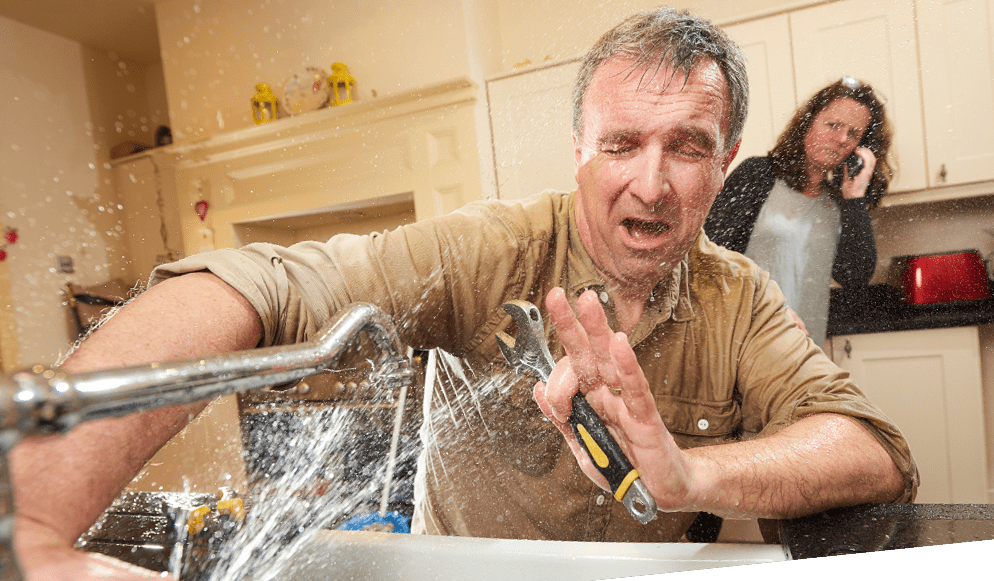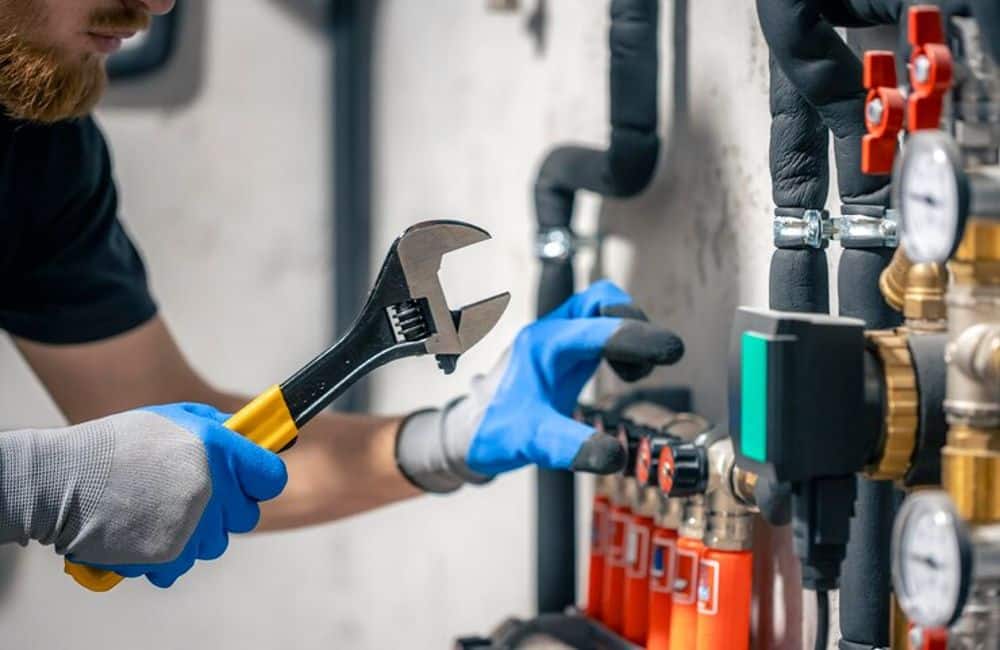Quick Plumbing Fixes for Critical Situations: Steps to Follow Until Help Arrives
WebsiteHow do you actually feel on the subject of Expert Tips for Emergency Plumbing Repairs?

Plumbing emergencies can strike at any time, creating anxiety and prospective damages to your home. Whether it's a ruptured pipeline, a stopped up drain, or a leaky faucet, knowing just how to take care of the circumstance up until a professional plumber gets here can conserve you from additional problems. This article provides crucial emergency plumbing pointers to aid you alleviate damages and reclaim control throughout a plumbing situation.
Shut off the Supply Of Water
The first step in any kind of plumbing emergency is to shut down the water system. For localized concerns, such as a dripping faucet or commode, shut off the valve near the component. When it comes to a major leakage or burst pipe, find your home's main water shut-off shutoff and turn it off instantly. Understanding the location of these shutoffs in advance can save useful time during an emergency situation.
Address Little Leakages with Momentary Fixes
Tiny leaks can promptly end up being significant issues if left unchecked. Make use of these short-term solutions up until professional assistance arrives:
While these fixes aren't long-term, they can aid reduce water loss and damages.
Unclog Drains Safely
A clogged up drain can be a discouraging and messy problem. Below's how to tackle it:
If these methods don't function, stay clear of using excessive force, as it might get worse the blockage.
Manage Overflowing Toilets
An overflowing bathroom can create immediate mayhem. Right here's what you must do:
Turn off Your Water Heater
In specific emergency situations, such as a burst pipe, it's a good idea to turn off your water heater. This stops overheating or damage to the unit when water stops flowing. Turn off the power supply to the water heater (electric or gas) and allow it cool to stay clear of possible threats.
Momentarily Quit a Ruptured Pipe
A burst pipe can lead to significant water damages in mins. To alleviate the problem:
Call a professional plumber promptly to attend to the issue permanently.
Take Care Of Frozen Water Lines Very Carefully
In colder environments, icy pipes are a common emergency situation. If you presume a frozen pipeline:
Avoid More Damages
Taking quick activity to reduce damages can save you money and time over time. Here's just how:
. Have an Emergency Pipes Package
Prepare a fundamental pipes emergency package to deal with small issues successfully. Your kit ought to consist of:
Having these devices available can make a substantial difference in your capability to take care of emergencies.
Know When to Call an Expert.
While quick fixes can aid temporarily, specific pipes issues need prompt professional interest. Call a plumbing professional if:.
Quickly calling a specialist ensures the problem is solved appropriately and prevents further issues.
Final thought.
Pipes emergency situations can be overwhelming, but with the best understanding and devices, you can handle the scenario efficiently till help shows up. By switching off the supply of water, attending to tiny leaks, and utilizing short-lived fixes, you can lessen damages and keep your home safe. Keep in mind, these pointers are temporary options; constantly speak with an accredited plumbing technician to handle the source of the issue. Prep work and quick thinking are your finest allies in any kind of plumbing emergency.
8 Helpful Tips for Managing Plumbing Emergencies at Home
If your plumbing system hasn’t failed once, wait for it because almost everyone has a story to tell. Sometimes, it could be simple emergencies such as a leaking pipe, a blocked cistern, or even a big burst pipe. In situations like this, you need to have some handy tips to save you some money and from possible damages.
Take care of minor issues early.
Sometimes, you could have avoided an emergency by taking proactive measures while it was still early. Some major plumbing emergencies can be a result of an ignored minor issue. We recommend that you have items like plumbing tapes and other related items. A plumbing tape can allow you to manage minor leaks before the plumber arrives.
Cut off the water supply.
This tip is essential in almost any type of leakage problem. For problems like minor leakages in the toilet or kitchen, turn off the supply that takes water to the affected pipes. If the leakage is a major pipe, you must shut off the supply valve to the entire building. This will help you avoid flooding your home and neighbors if you share a flat.
Know your plumbing system
Folks typically move into a new apartment without understanding the water supply around the building. This can prove disastrous if a water emergency arises and the plumber is far away. The previous tip will prove useless if you don’t practice this one. More importantly, know where your water shut-off valve is located – you’ll need that knowledge to prevent potential home floods.
Have some common handy tools
There are lots of plumbing emergencies that you can handle without hiring a plumber. That’s why you must keep some tools available always. Some tools that you can use to fix simple plumbing emergencies easily include plumbing tapes, screwdrivers, thread seal tapes, plungers, pliers, tape measures, and rubber gloves.
Insulate your pipes from cold
You’ll save yourself from many plumbing expenses if you protect your water pipes from the cold. This is because of the harmful effects that cold weather can have on your pipes. During winter, your pipes can burst from being overly expected to freezing temperatures. So, make sure insulators are there to keep the pipes working correctly.
Avoid practices that will clog your toilet.
Many people indulge in practices that can damage the plumbing system of the entire building. One of these is when they use their toilet to dispose-off garbage. They flush all kinds of things, such as paper towels, bandages, hairs, female sanitary products, etc., down the toilet. This will block your toilet in the long run, incurring unnecessary expenditures. Dump such waste in the trash instead.
Check your dials regularly.
Sometimes, there could be leakages in your home without noticing them in time. So, constantly monitor your water meter dial. If the dial is reading when there is nobody using water, this is an indicator that there is leaking. Check for leaks immediately. Call a plumber as soon as possible if you can’t find any.
https://www.constructionplacements.com/8-helpful-tips-for-managing-plumbing-emergencies-at-home/

I hope you enjoyed our excerpt on What to Do While Waiting for an Emergency Plumber. Thanks a lot for taking a few minutes to read through our article post. If you enjoyed our blog post kindly don't forget to share it. Thanks a lot for being here. Please visit our blog back soon.
Get An Estimate